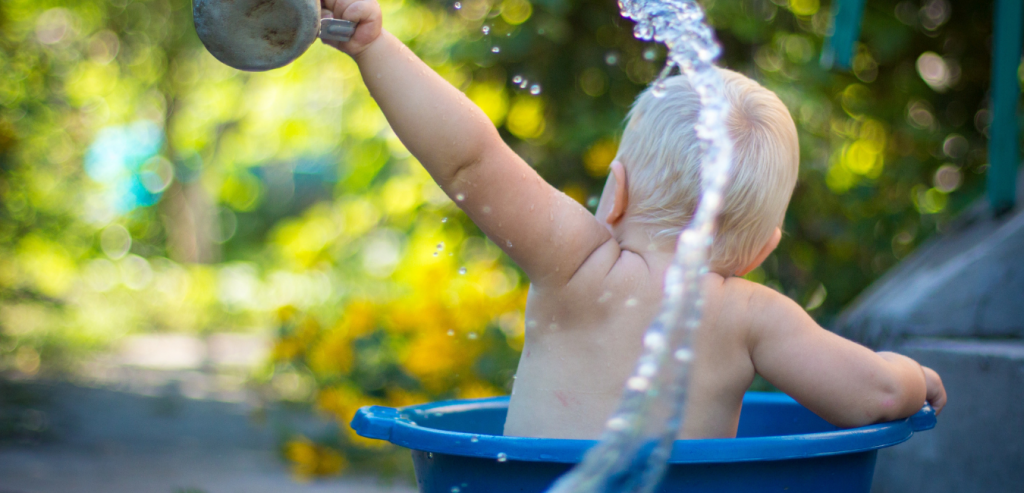Ezekiel 23 / Hebrews 10:18-39 / Psalm 109 / Proverbs 27:13
Each of us takes a bath or shower at regular intervals: we all hope Whether daily or three to four times a week. If you’ve studied history, you’re aware that back in the old days when water had to be carried from a water source and heated on the stove to fill the big tub, baths were only on Saturday night before Church on Sundays. Yea, there were some stinky people back then. That was also before deodorant was invented, although I’m sure they had ways to try to cut down on the smell.
Did you know that the saying, “Don’t throw the baby out with the bathwater” came from this period in history? We learned about this when we went to historic Williamsburg, VA several years ago. One of the actors shared where some of our sayings came from. From the way I remember it, the man of the house got the first bath, then the sons, then the wife, then the daughters, and the baby was last.
By the time the baby got into the same water everyone else had used, it was not only filled with soap, but it was also very dirty. So, it might be easy to miss the baby if it was still in the water. No, we’re not talking about accidentally drowning babies! The saying was to be sure you had gotten the baby washed and out of the tub before you emptied the water, thus: “Throwing the baby out with the bathwater.”
Today, that saying has a different meaning. There are some in my life who tend to throw out the proverbial baby, meaning they miss the point of the conversation or the intended meaning at hand, and in disgust or offense, throw out the entire idea or conversation as worthless. This tends to happen when a conversation requires more thought and work to get ideas across to the other person. Some don’t want to or have time for the hard work of conversing toward understanding.
All that to say, one of today’s verses got me thinking about these baths. Hebrews 10:22b in the New International Version, (NIV), tells us, “For our guilty consciences have been sprinkled with Christ’s blood to make us clean, and our bodies have been washed with pure water.” Now, do you see why I thought of those baths?
The baths we take are for our physical bodies to be clean; but how is that different from our bodies being washed with this pure water from scripture? The scriptural body washing refers to our baptism after or along with salvation. Baptism with water symbolizes a washing having taken place inside us. Baptism is also a public declaration of our faith and desire to follow Jesus Christ.
Water by itself does not make a person clean in a spiritual sense; the Holy Spirit must invade us for the process of becoming like Christ to begin. What about the part of the blood of Christ making our guilty conscience clean? We are guilty when we’ve done something wrong, or when we’ve sinned. Sin separates us from our loving heavenly Father.
When our conscience is made clean because of Jesus’s work on the cross we are free to choose good things. It is the conscience that causes us to choose between good and evil. Our guilty conscience is the alert system telling us we have sinned and need to be forgiven. When our conscience has been washed, we are relieved from guilt.
Salvation allows us to be washed in our spirits, our souls, and our bodies: meaning at salvation our spirits are made perfect because Jesus Christ comes to live there. Then our souls are made clean as we submit to Holy Spirit’s work. Finally, our bodies will be made new when we enter eternity to live with God. That is our final washing.
The next time you take a bath, I encourage you to reflect on the washing of the Holy Spirit and thank Him for making you spiritually clean.

